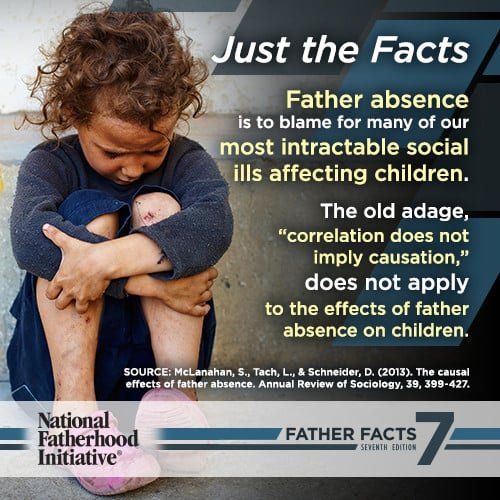

In the diverse landscape of parenting, fathers often bring unique qualities and strengths to the table. Historically, the role of fathers in child-rearing was often overlooked; however, recent studies and societal shifts have highlighted the essential attributes that fathers bring to the upbringing of their children. Drawing upon various sources, this article delves into the distinct aspects that make fathers exemplary parents.
Positive Impact on Children's Lives:
Research indicates that children raised by single fathers are less likely to engage in substance abuse and criminal activities (Biblarz & Stacey, 2010)[^3^]. The presence of a supportive father figure significantly contributes to shaping responsible and law-abiding citizens.Academic Achievement and Future Prospects:
Single fathers often play a crucial role in their children's educational journey. Studies have shown that children raised in single-father households tend to excel academically, leading to better opportunities for higher education and future careers (Biblarz & Stacey, 2010)[^3^].Emotional Well-being and Mental Health:
The emotional support provided by single fathers is instrumental in fostering the mental well-being of their children. Research indicates that children in single-father households often exhibit higher levels of emotional resilience and self-confidence (Biblarz & Stacey, 2010)[^3^].Lower Likelihood of Addiction and Criminal Activities:
Single fathers have been shown to provide a stable and secure environment, reducing the likelihood of their children engaging in addictive behaviors or criminal activities (Biblarz & Stacey, 2010)[^3^].Stronger Family Bonds:
Fathers, whether in single-parent or dual-parent households, are crucial in building strong family bonds. The involvement of fathers in nurturing relationships within the family fosters a sense of unity and support. Children raised by single fathers often exhibit strong family values and are more likely to maintain close relationships with their parents and siblings even into adulthood (Biblarz & Stacey, 2010)[^3^].
In conclusion, fathers bring a unique and invaluable perspective to parenting. Their positive influence on children's lives is evident through lower rates of addiction, reduced involvement in criminal activities, academic achievements, emotional well-being, and the fostering of strong family bonds. As society continues to recognize and appreciate the multifaceted role of fathers, it is evident that fathers are not just equal partners in parenting but also excel in their unique contributions, making them exceptional parents.
References:
US Census Bureau America’s Families and Living Arrangements. [(accessed on 30 May 2022)];2021 Available online: https://www.census.gov/data/tables/2021/demo/families/cps-2021.html
Office for National Statistics Families and Households in the UK. [(accessed on 30 May 2022)];2021 Available online: https://www.ons.gov.uk/peoplepopulationandcommunity/birthsdeathsandmarriages/families/bulletins/familiesandhouseholds/2021
Biblarz T.J., Stacey J. How does the gender of parents matter? J. Marriage Fam. 2010;72:3–22. doi: 10.1111/j.1741-3737.2009.00678.x. [CrossRef] [Google Scholar]
Mortelmans D.M. Chapter 2 Economic Consequences of Divorce: A Review. In: Kreyenfeld M., Trappe H., editors. Parental Life Courses after Separation and Divorce in Europe, Life Course Research and Social Policies. Springer Open; New York, NY, USA: 2020. [CrossRef] [Google Scholar]
Eamon M.K., Zuehl R.M. Maternal depression and physical punishment as mediators of the effect of poverty on socioemotional problems of children in single-mother families. Am. J. Orthopsychiatry. 2001;71:218–226. doi: 10.1037/0002-9432.71.2.218. [PubMed] [CrossRef] [Google Scholar]
Amato P.R. The consequences of divorce for adults and children. J. Marriage Fam. 2000;62:1269–1287. doi: 10.1111/j.1741-3737.2000.01269.x. [CrossRef] [Google Scholar]
van Dijk R., van der Valk I.E., Deković M., Branje S. A meta-analysis on interparental conflict, parenting, and child adjustment in divorced families: Examining mediation using meta-analytic structural equation models. Clin. Psychol. Rev. 2020;79:101861. doi: 10.1016/j.cpr.2020.101861. [PubMed] [CrossRef] [Google Scholar]
Hetherington E.M., Kelly J. For Better or for Worse: Divorce Reconsidered. W.W. Norton & Company; New York, NY, USA: 2002. [Google Scholar]
Nunes C., Martins C., Ayala-Nunes L., Matos F., Costa E., Gonçalves A. Parents’ perceived social support and children’s psychological adjustment. J. Soc. Work. 2021;21:497–512. doi: 10.1177/1468017320911614. [CrossRef] [Google Scholar]
Golombok S. Modern Families: Parents and Children in New Family Forms. Cambridge University Press; Cambridge, UK: 2015. [CrossRef] [Google Scholar]
Murray C., Golombok S. Going it alone: Solo mothers and their infants conceived by donor insemination. Am. J. Orthopsychiatry. 2005;75:242–253. doi: 10.1037/0002-9432.75.2.242. [PubMed] [CrossRef] [Google Scholar]
Murray C., Golombok S. Solo mothers and their donor insemination infants: Follow-up at age 2 years. Hum. Reprod. 2005;20:1655–1660. doi: 10.1093/humrep/deh823. [PubMed] [CrossRef] [Google Scholar]
Golombok S., Zadeh S., Imrie S., Smith V., Freeman T. Single mothers by choice: Mother–child relationships and children’s psychological adjustment. J. Fam. Psychol. 2016;30:409–418. doi: 10.1037/fam0000188. [PMC free article] [PubMed] [CrossRef] [Google Scholar]
Golombok S., Zadeh S., Freeman T., Lysons J., Foley S. Single mothers by choice: Parenting and child adjustment in middle childhood. J. Fam. Psychol. 2021;35:192–202. doi: 10.103
Solo Fathers and Mothers: An Exploration of Well-Being, Social Support and Social Approval, https://www.ncbi.nlm.nih.gov/pmc/articles/PMC9368669/